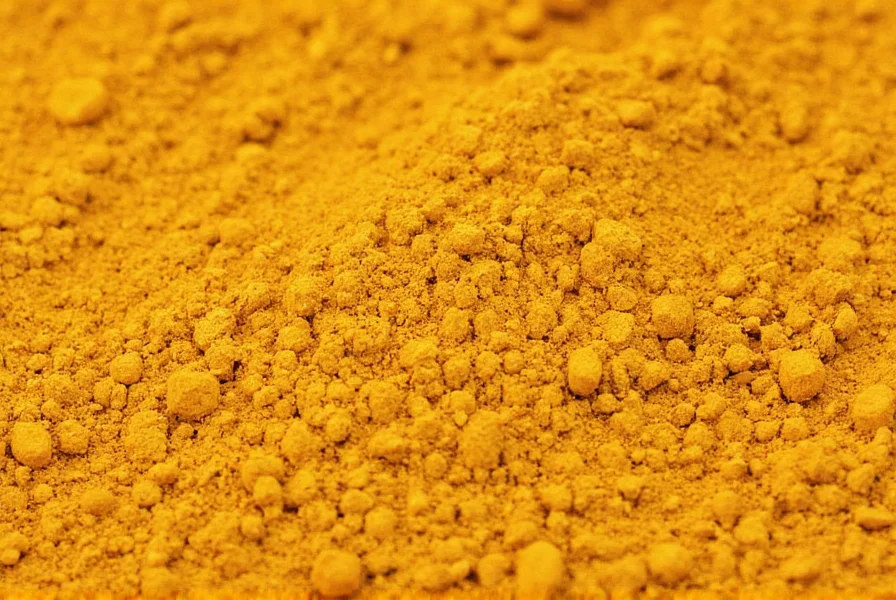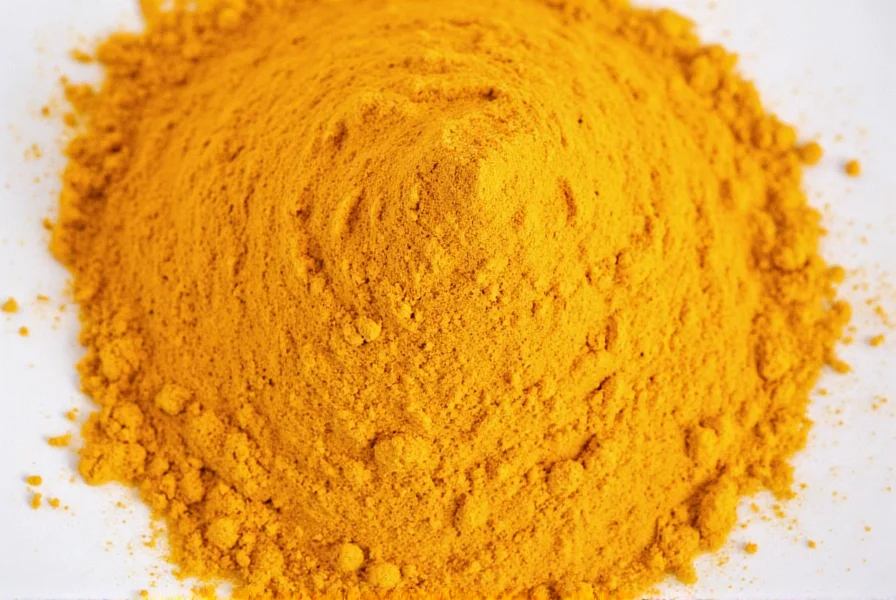Based on current scientific evidence, consuming more than 8 grams of turmeric powder daily is generally considered excessive for most adults. The World Health Organization suggests an acceptable daily intake of 0-3 mg of curcumin (the active compound) per kilogram of body weight, while the European Food Safety Authority recommends no more than 0.13 mg of curcumin per pound (0.3 mg per kg) of body weight. Individual tolerance varies based on health conditions, medications, and duration of use.
Curcumin, the primary active compound in turmeric, has gained significant attention for its potential health benefits. However, like many natural compounds, there's a threshold where benefits may diminish and risks increase. Understanding appropriate turmeric powder consumption is essential for safely incorporating this golden spice into your diet.
Understanding Turmeric Dosage Guidelines
When discussing how much turmeric powder is too much, it's crucial to distinguish between culinary use and therapeutic supplementation. As a cooking spice, turmeric is generally recognized as safe (GRAS) by the FDA. Most people safely consume 1-3 grams of turmeric powder daily in their food without adverse effects.
For those using turmeric for potential health benefits beyond culinary purposes, understanding maximum safe dosage of turmeric powder becomes more critical. Research suggests that doses exceeding 8 grams per day may lead to gastrointestinal issues and other potential side effects, particularly with prolonged use.
Culinary Use vs. Therapeutic Supplementation
The distinction between using turmeric as a spice versus a supplement significantly impacts what constitutes excessive turmeric consumption. In traditional cooking applications:
- Typical daily intake ranges from 0.5 to 3 grams of turmeric powder
- These amounts provide approximately 15-90 mg of curcumin
- Generally considered safe for long-term consumption
When used as a supplement for potential therapeutic effects:
- Doses often range from 500 mg to 2,000 mg of curcumin daily
- These typically require standardized extracts to achieve therapeutic levels
- Should be monitored, especially at higher doses
| Usage Type | Daily Turmeric Powder | Curcumin Content | Safety Considerations |
|---|---|---|---|
| Culinary (cooking) | 0.5-3 grams | 15-90 mg | Generally safe for daily long-term use |
| Moderate supplementation | 1.5-3 grams | 45-90 mg | Monitor for digestive effects |
| High-dose supplementation | 4-8 grams | 120-240 mg | Short-term use only; consult healthcare provider |
| Excessive consumption | 8+ grams | 240+ mg | Potential adverse effects; not recommended |

Potential Side Effects of Excessive Turmeric Consumption
Understanding signs of too much turmeric in your system is essential for safe consumption. While turmeric is generally well-tolerated, excessive amounts may cause:
- Gastrointestinal issues: Nausea, diarrhea, or stomach upset are the most common reactions to high doses
- Blood thinning effects: Turmeric may enhance the effects of blood-thinning medications
- Iron absorption interference: High doses may affect iron metabolism, particularly concerning for those with iron deficiency
- Liver concerns: Rare cases of elevated liver enzymes have been reported with extremely high doses
Research published in Food and Chemical Toxicology indicates that doses exceeding 1,000 mg of curcumin per kilogram of body weight in animal studies showed potential toxicity, though human tolerance is significantly higher. The maximum daily turmeric powder limit for most adults appears to be around 8 grams before adverse effects become more likely.
Who Should Be Particularly Cautious
Certain populations need to be especially mindful of their turmeric intake. Understanding how much turmeric is too much for specific health conditions is crucial:
- Individuals taking blood thinners: Turmeric may enhance the effects of medications like warfarin
- People with gallbladder issues: Turmeric may stimulate bile production, potentially worsening gallstone conditions
- Those with iron deficiency: High turmeric intake may interfere with iron absorption
- Pregnant or breastfeeding women: Should stick to culinary amounts and avoid high-dose supplementation
- Pre-surgical patients: Should discontinue high-dose turmeric at least two weeks before surgery due to potential bleeding risks
Curcumin Content Matters: Turmeric Powder vs. Supplements
One critical factor in determining how much turmeric powder is excessive is the actual curcumin content. Not all turmeric products contain the same concentration of active compounds:
- Standard turmeric powder contains approximately 2-5% curcumin by weight
- Many therapeutic supplements use standardized extracts with 95% curcumin content
- Black pepper (piperine) is often added to enhance curcumin absorption by up to 2,000%
This means that 1 gram of a standardized curcumin supplement delivers significantly more active compound than 1 gram of regular turmeric powder. When evaluating safe upper limit for turmeric consumption, always consider whether you're using plain powder or a concentrated extract.
Practical Guidelines for Safe Turmeric Consumption
For those wondering how to determine if you're consuming too much turmeric, consider these practical recommendations:
- Start low and go slow: Begin with culinary amounts (¼-½ teaspoon daily) and gradually increase if needed
- Monitor your body's response: Pay attention to any digestive discomfort or other unusual symptoms
- Consider timing: Taking turmeric with food reduces the risk of stomach upset
- Combine with healthy fats: Curcumin is fat-soluble, so consuming with healthy fats enhances absorption
- Stay hydrated: Adequate water intake helps your body process compounds effectively
- Track your total daily intake: Be mindful of turmeric in all forms - cooking, teas, and supplements
For most healthy adults, sticking to culinary amounts (up to 3 grams of turmeric powder daily) presents minimal risk. Those using turmeric for specific health purposes should consult with a healthcare provider to determine appropriate dosing for their individual circumstances.
When to Consult a Healthcare Professional
While turmeric is generally safe as a food spice, certain situations warrant professional guidance regarding excessive turmeric intake concerns:
- Planning to consume more than 3 grams of turmeric powder daily for extended periods
- Experiencing persistent digestive issues after turmeric consumption
- Taking medications that may interact with turmeric (blood thinners, diabetes medications, etc.)
- Having pre-existing liver or gallbladder conditions
- Considering turmeric supplementation during pregnancy or while breastfeeding
Healthcare providers can help determine your personal safe turmeric consumption threshold based on your health status, medications, and goals.
What are the first signs of consuming too much turmeric powder?
The most common initial signs of excessive turmeric consumption include digestive discomfort such as nausea, diarrhea, or acid reflux. Some people may experience dizziness or headaches at very high doses. If you notice these symptoms after increasing your turmeric intake, consider reducing your consumption.
Can you overdose on turmeric powder?
While it's unlikely to experience life-threatening toxicity from culinary amounts of turmeric powder, extremely high doses (typically from supplements rather than cooking) may cause significant side effects. There's no established lethal dose for turmeric in humans, but consuming more than 8 grams daily of turmeric powder may lead to adverse effects, particularly with prolonged use.
How much turmeric powder is safe to take daily for inflammation?
For inflammation support, research suggests 500-2,000 mg of curcumin daily may be beneficial. Since turmeric powder contains only 2-5% curcumin, this translates to approximately 10-40 grams of turmeric powder - but this amount would be excessive and potentially harmful. Most experts recommend using standardized curcumin extracts (with piperine for absorption) rather than plain turmeric powder for therapeutic anti-inflammatory effects.
Does cooking with turmeric count toward daily limits?
Yes, all forms of turmeric consumption count toward your daily total. However, typical culinary use (¼-1 teaspoon in recipes) contributes only 0.5-2 grams of turmeric powder to your daily intake, well below concerning levels. The primary concern for exceeding safe limits comes from combining culinary use with supplementation.
How long does it take for symptoms of too much turmeric to appear?
Digestive symptoms from excessive turmeric consumption typically appear within hours of ingestion. More systemic effects from prolonged high intake (beyond 8 grams daily for several weeks) may take days or weeks to manifest. Individual responses vary based on sensitivity, overall health, and other dietary factors.











 浙公网安备
33010002000092号
浙公网安备
33010002000092号 浙B2-20120091-4
浙B2-20120091-4